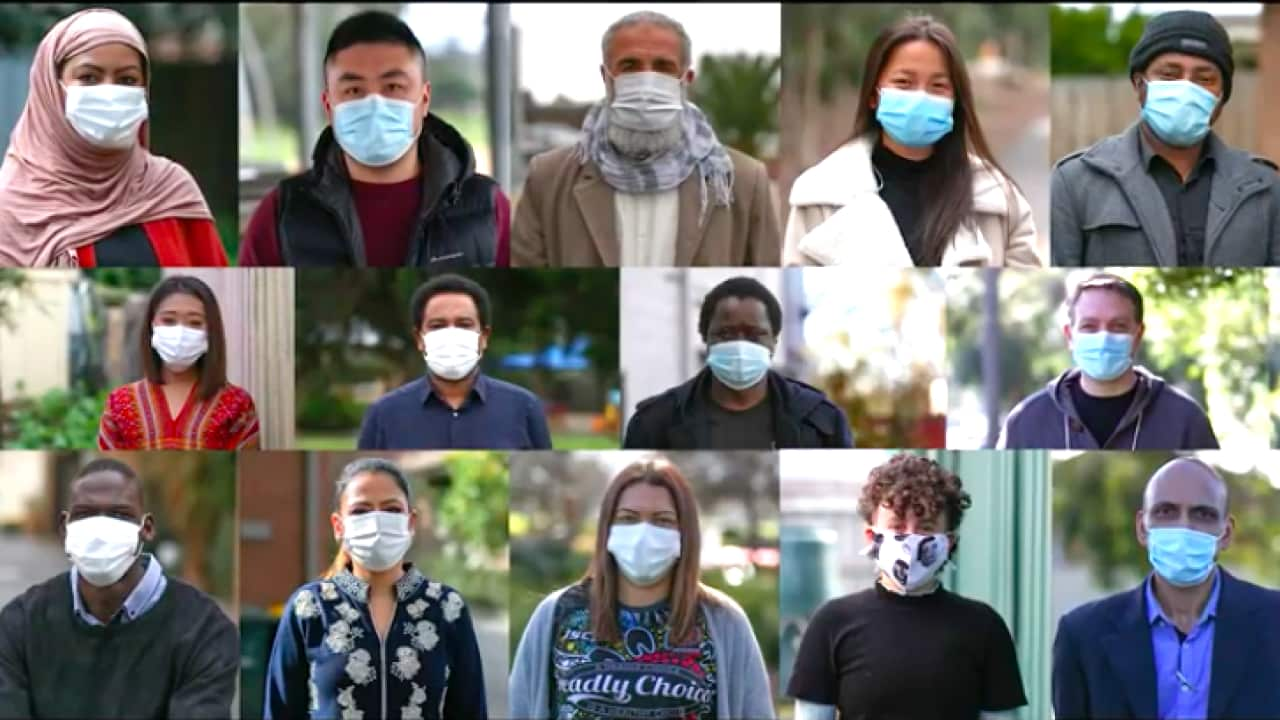In Melbourne’s north, public housing tower resident Barry Berih is fighting the pandemic one myth at a time.
“People don’t trust the vaccine at the moment. People are still unsure, nobody know what’s going to happen in the long term,” he tells SBS News.
It's a mistrust, he says, seeded by the hard COVID-19 lockdowns of last year that saw thousands of tower residents impacted without warning
Melbourne’s north and west have the lowest vaccination rates in the state, according to health department data. It's a statistic cohealth - a not-for-profit community health organisation - is working to improve.
People don’t trust the vaccine at the moment. - Barry Berih, Melbourne
Cohealth community engagement manager Emit Taylor says engaging with culturally and linguistically diverse (CALD) communities was recognised as a priority early on in the pandemic.
“We’re really working hard recruiting people from the community who represent the different language and cultural backgrounds of the people we’re working with and that has been a critical part of our engagement campaign.”
Cohealth has about 100 employees involved in relaying COVID-19 information in languages other than English. Taylor says it is a long game but one that's slowly yielding results.
“We are seeing huge increases in people accessing the vaccination clinic, which indicates people are feeling more comfortable and more informed about what is happening in the community.”
But South Sudanese community leaders say a gap still exists in the information chain. Ring Mayar of the South Sudanese Community Association of Victoria says he’s fighting myths about COVID-19 and the vaccine on a daily basis because many people feel disconnected from government information outlets.
Ring Mayar of the South Sudanese Community Association of Victoria says he’s fighting myths about COVID-19 and the vaccine on a daily basis because many people feel disconnected from government information outlets.

Ring Mayar says governments need to engage directly with communities Source: SBS/Abby Dinham
"There has been a gap, and this gap is the fact the government isn’t going to CALD communities to talk to them directly. We haven’t seen that and we want to work with all the government agencies of concern in the area of vaccination,” he says.
Out of date in-language information has been discovered on the federal Department of Health website.
Mr Mayar says regular town hall meetings with CALD communities are a better option than translated guides as the COVID-19 and vaccine advice change so quickly.
“The government should hold meetings with the communities, in their own facilities, in their own communities. You would foster good communication and build the trust.”
Building trust around the vaccine program is an aim of those including Ambrose Mareng. He is one of the dozens of volunteer vaccine champions for the Victorian government.

Ambrose Mareng is helping provide vaccine Information to communities. Source: Supplied
“I tell you, I am working 80 to 100 hours per week ... in community settings, on the computer, people are calling me all hours of the day,” he says.
Mr Mareng says confusion over the vaccine message in CALD communities is fuelled by misinformation on social media.
“People believe that if they are not sick, why should they take the vaccine? These sorts of ideas are adding on to misinformation already received on social media.”
The Australian National University’s Garang Dut was born in South Sudan and came to Australia when he was 17.
He says newly arrived communities tend to be insular in how they get information, choosing to rely on trusted people within the community and social media sources, which he says can be a fertile ground for conspiracy theories. “There has been a lot of sharing on social media of information that is definitely not true to people in the medical profession, but to someone who isn’t trained or of an academic background in health. they’re more likely to believe such information.”
“There has been a lot of sharing on social media of information that is definitely not true to people in the medical profession, but to someone who isn’t trained or of an academic background in health. they’re more likely to believe such information.”

Garang Dut says the biggest battle is against misinformation on social media. Source: SBS
He says media coverage of the pandemic that identifies the ethnicity of those who breach COVID-19 regulations and the failure of federal government support packages to recognise the existing disadvantage of refugee communities has created an ‘us and them’ pandemic experience.
Dr Dut says this has led Australians of African heritage - who have typically been early adopters of vaccines - to lose confidence in government public health measures.
He says broadcasting in-language information helps, but that it is constantly competing against the misinformation on social media.
“The government has put a lot of money into translating COVID-19 information, which is great. These channels where translated messages are broadcast through the television have been helpful, but not impactful enough because the alternative sources are still competing.”
He says until communities feel more included in the COVID-19 response, the capacity of public health measures will continue to be limited.
The Department of Health told SBS News it has “provided grants to more than 80 multicultural community organisations to deliver vaccine-related outreach activities, including community information sessions and other health information” from numerous countries of heritage, providing vital health information in more than 50 languages.
SBS is committed to informing Australia's multilingual communities about the latest coronavirus developments. provides information and updates in 60 languages.
SBS is also providing live translations of daily New South Wales and Victoria COVID-19 press conferences in various languages. .













